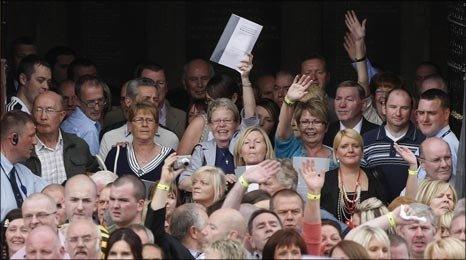Ivan Cooper: Civil rights leader forever linked to Bloody Sunday
- Published
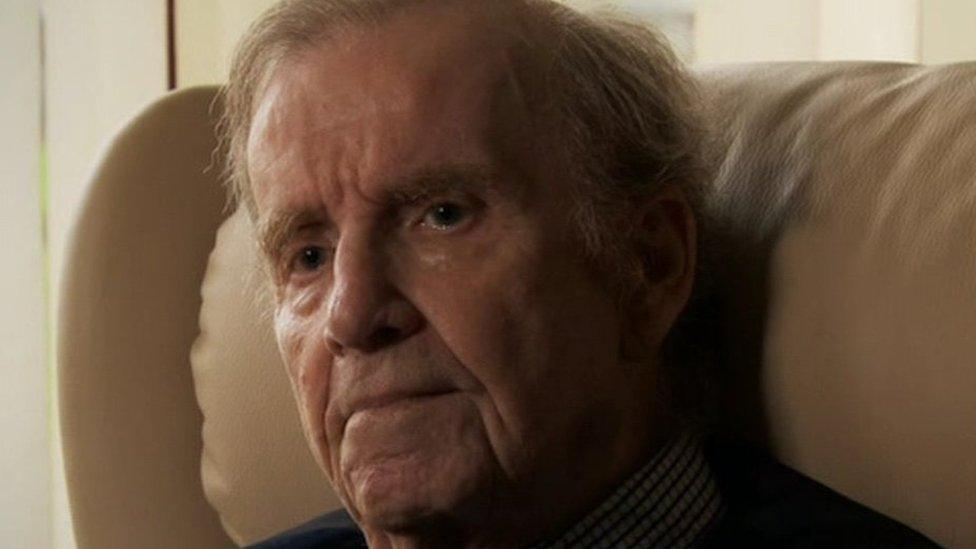
Ivan Cooper was a passionate civil rights campaigner forever linked to the events of Bloody Sunday in Derry
The former politician and civil rights campaigner Ivan Cooper will forever be linked to the events of Bloody Sunday in Derry in 1972.
He was one of the leaders of the civil rights march that ended in bloodshed.
Thirteen people were killed on 30 January when British paratroopers opened fire on the crowd., external
Fourteen others were wounded - one later died. Looking back, external, Cooper said that Bloody Sunday changed the whole course of history in Northern Ireland.
"Before Bloody Sunday, I believe there were no more than 30 to 40 IRA volunteers in Derry. They had a very small base, small amounts of hardware and, most importantly, very little support," he said in a BBC interview 30 years later.
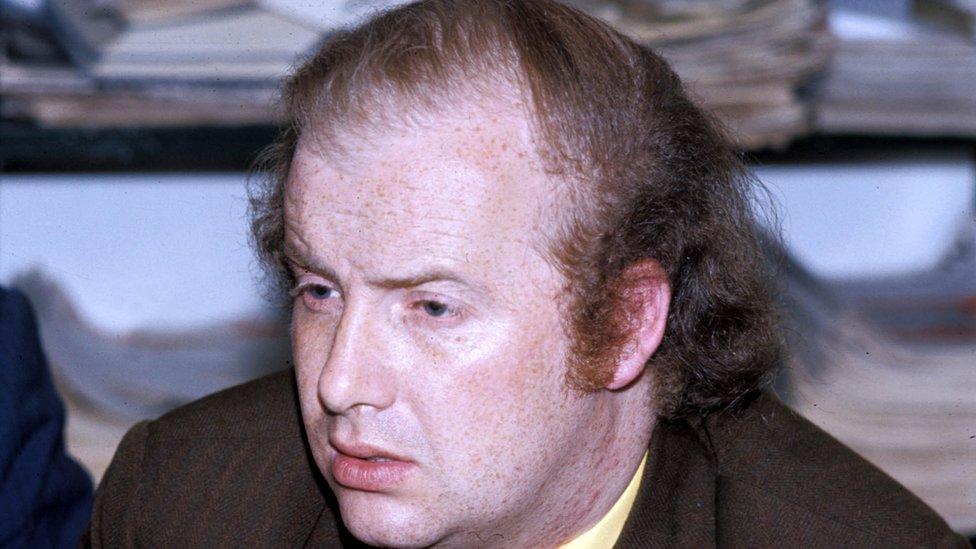
Ivan Cooper pictured in 1972
"The support was with John Hume and Ivan Cooper. We were still reasonably integrated in the city.
"The IRA's campaign of violence that followed in the wake of Bloody Sunday [and internment] changed all that."
Ivan Cooper was born in 1944 in Killaloo, Claudy, County Londonderry, into a working-class Protestant family. They later moved to the Bogside in Derry and he kicked footballs on the streets.
"I have very affectionate memories of the Bogside. I moved here as a 12-year-old boy," he would later tell The Irish News.
"When I was older, John Hume [former SDLP leader] and I spent many hours in the local fish and chip shop talking into the small hours and putting the world to rights."
Battle of the Bogside
He discovered an early passion for politics.
He began as a member of the Claudy Young Unionist Association but, in 1965, he switched to the Northern Ireland Labour Party.
In the late 1960s, he played a major role in the Northern Ireland Civil Rights Association, campaigning for equality.
He became president of the Derry Citizens' Action Committee from 1968 to 1969.
He was passionately committed to non-violence and he believed that both Catholic and Protestants should work together to fight for their rights.

Bloody Sunday, a film in which Ivan Cooper was played by James Nesbitt (far right), was released in 2002
He was elected as an independent MP for Mid Londonderry in 1969 and served until 1972.
In August 1969, he became involved in trying to stop the riots that raged in his home city in what became known as the Battle of the Bogside.
A parade by the loyalist Apprentice Boys was allowed to go ahead past the perimeter of the Catholic Bogside despite repeated warnings of trouble.
Riots between police and people living in the area raged and the Army was called in to restore order.
Car bomb target
Cooper was knocked unconscious by a stone as he tried to stop the violence.
In 1970, Cooper co-founded the nationalist Social Democratic and Labour Party (SDLP) along with John Hume, Paddy Devlin, Austin Currie and Gerry Fitt.
It was a political stance that led some within his own community to call him a traitor.
On Bloody Sunday, he was the Protestant civil rights activist who organised the predominantly Catholic marchers.
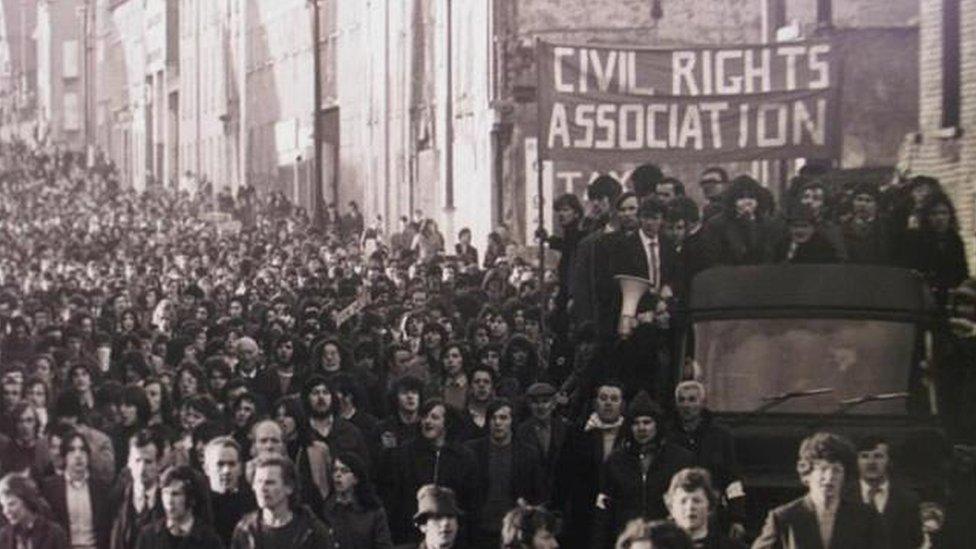
Thirteen people died when paratroopers opened fire on civil rights demonstrators in Derry on Bloody Sunday
He was also a target.
In March 1972, he received a phone call to his home which, he believed, was intended to lure him out to his car. But he was suspicious and, while he was checking out the call, a bomb exploded. No-one was hurt.
Cooper was elected to represent Mid-Ulster in 1973 and served as minister of community relations in the short-lived Sunningdale administration in 1974.
At the height of his political career, Ivan Cooper had the largest support of any nationalist MP elected to Stormont before the introduction of direct rule.
But, by his own admission, he slowly drifted away from politics as it was squeezed more and more by the violence in Northern Ireland.
Ivan Cooper left active politics in 1983.
'Soldiers should be accountable'
That year, he stood aside in Derry to allow John Hume, by then party leader, to fight and win the new Foyle constituency.
Speaking in 2002, external, after the film of Bloody Sunday was released - Northern Ireland actor James Nesbitt played Cooper - he said that looking back, it was the policy of internment without trial that was the big issue and one that "would ultimately do more harm than good".
Eight years later, Cooper was among the crowds waiting to hear the outcome of the Saville Report into the events of Bloody Sunday.
In an interview with the Guardian, external, the veteran civil rights campaigner said he was "apprehensive about this day".
"The people have waited and prayed for this day for 38 years. I hope they are all declared innocent, which is exactly what they were," he said.
"I saw with my own eyes on that day, innocent people being shot dead and those who were in command of the soldiers who fired those shots should be accountable."
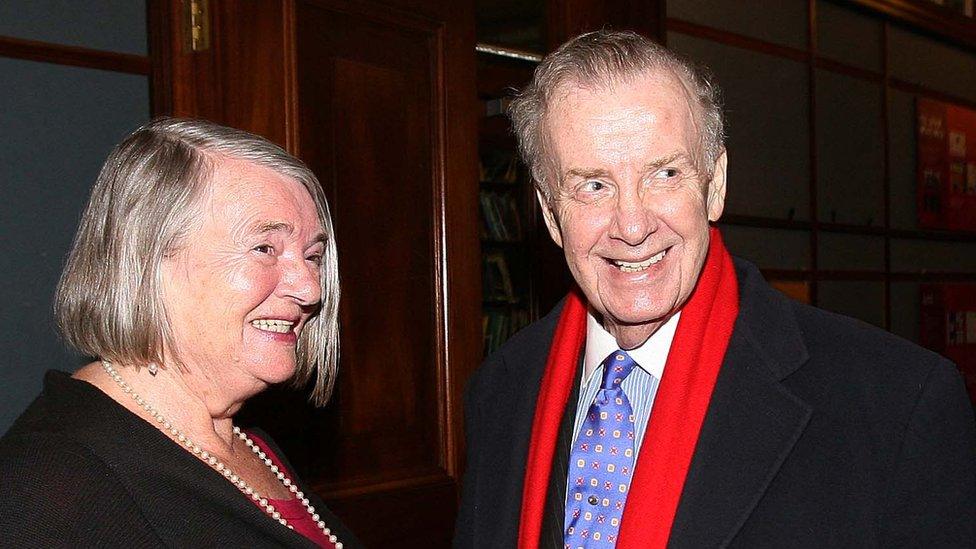
Founder members of the civil rights movement Edwina Stewart and Ivan Cooper in 2008
Later, Cooper told a BBC Spotlight programme in 2015 that the SDLP itself was responsible for its fall in popularity.
"At the end of the day, the party failed to continue attracting new membership.
"For any political party to survive it is essential that new members are attracted. We simply got lazy," he said.
Looking back to the 1981 republican hunger strikes when 10 men died, Cooper said: "They were the martyrs at that time.
"There was a great deal of enmity between Sinn Féin and the SDLP. Some of it was not terribly well handled by us and it was nasty, some of that stuff. It was a bad mistake," he said.
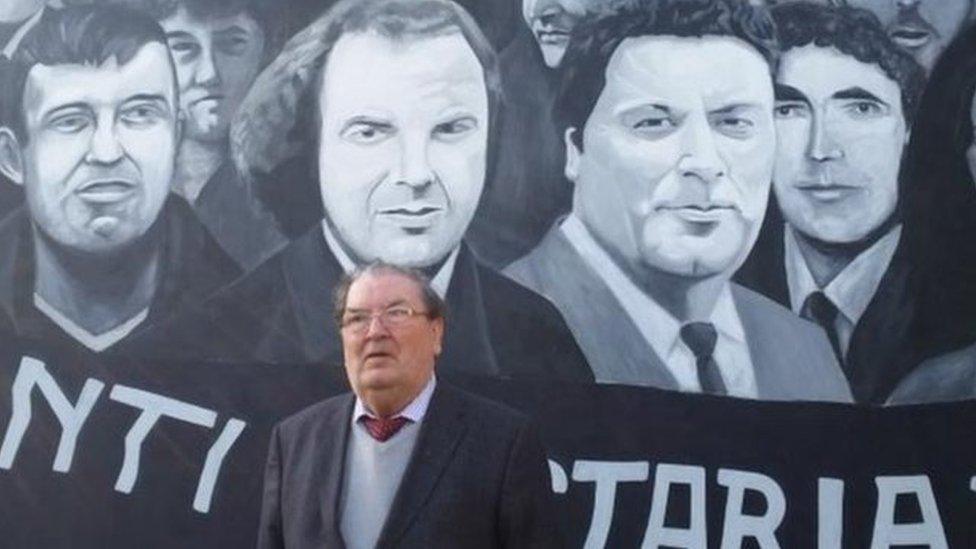
John Hume in 2015 stands at a refreshed mural featuring him and Ivan Cooper in the Bogside
"The public were sympathetic towards them. We demonised them. That was a mistake undoubtedly."
Even though he went on to work quietly as an insolvency consultant in the city, Cooper could never quite get politics out of his blood.
In later life, he said that he missed it very much.
"If you have been in politics, it's something that stays with you," he said.
- Published16 October 2015
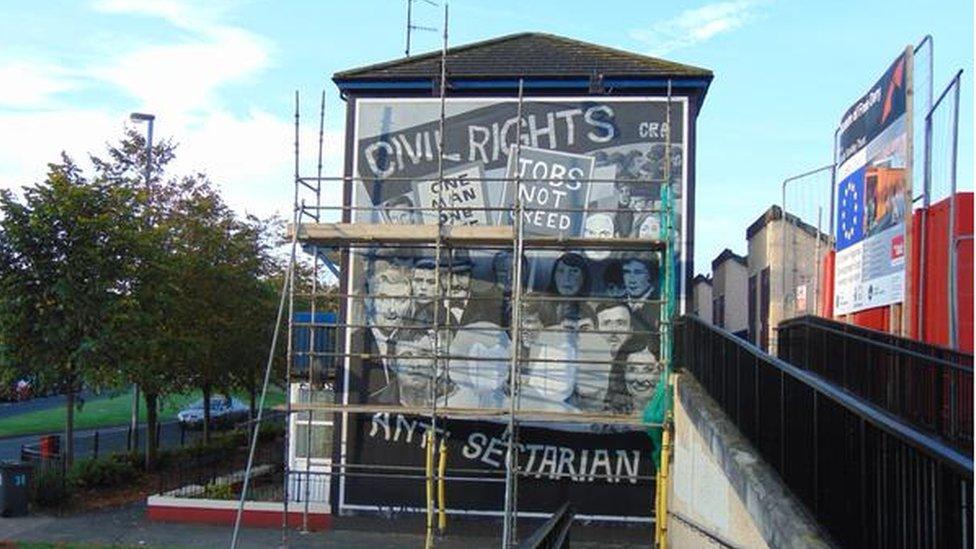
- Published15 June 2010
